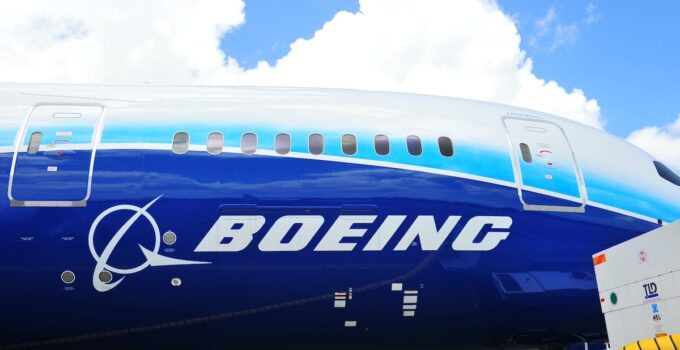The U.S. aerospace manufacturer Boeing has reached a settlement with the U.S. State Department after numerous incidents of international export violation.
$51 Million in Fines
The American aerospace manufacturer Boeing has accepted a $51 million fine issued in a settlement with the U.S. State Department after being charged with several international export violations.
The settlement came about after three China-based employees and contractors were found to have downloaded technical data and U.S. Pentagon programs at Boeing facilities in China.
These unauthorized downloads included files on military aircraft, including the F-22 and F-15 fighter jets, the AH-64 Apache attack helicopter, and more.
They occurred between 2013 and 2018 and involved 199 violations of the Arms Export Control Act and International Traffic in Arms Regulations, which have now officially been settled.
Issues Across Departments
China was far from the only country to experience export violations in Boeing facilities. Boeing admitted to further unauthorized downloads occurring at Boeing departments and partner companies in 18 different countries during the same period.
These countries included Australia, Canada, France, Germany, Hong Kong, India, Italy, Japan, Kenya, Morocco, Russia, Singapore, South Korea, Spain, Thailand, Taiwan, Ukraine and the United Kingdom.
The aerospace giant has agreed to cooperate fully with the State Department and voluntarily shared information concerning the violations with state authorities.
Official Statement From the State Department
The State Department released a statement on the settlement stating, “The settlement demonstrates the Department’s role in furthering the national security and foreign policy of the United States by controlling the export of defense articles.”
“The settlement also highlights the importance of exporting defense articles only pursuant to appropriate authorization from the Department,” it continued.
The settlement was reached after “an extensive compliance review,” and Boeing was also compelled to employ an external special compliance officer for two years following the decision.
External Audits in Boeing’s Future
The company will also undergo two external audits to ensure that it is still abiding by trade control obligations.
Of the $51 million fine, $24 million will be reallocated and used for the reinforcement of the compliance program and new remedial compliance measures.
The settlement has come at a complicated time for Boeing, which is already facing a number of financial disputes amid international criticisms.
The Missing Door
In early January, a door was blown off a Boeing 737 Max 9 aircraft during a commercial Alaska Airlines flight from Portland to Ontario, California, while the plane was 16,000 feet in the air.
The flight, which was later described by passengers as a “trip from Hell,” made international headlines after footage of the blown-off door and panicked passengers went viral on social media.
Both the Federal Aviation Administration and National Transportation Safety Board launched an investigation and reported a “pressurization issue” as the cause of the faulty door.
$1 Billion Lawsuit
This week, an aviation law firm, Jonathan W. Johnson LLC, filed a $1 billion lawsuit against Boeing and Alaska Airlines, representing three passengers who were on the flight.
The lawsuit follows a January lawsuit filed by four passengers against both companies. They were charged with three counts—a separate count of negligence for both Boeing and Alaska Airlines and a third count of strict product liability against Boeing.
A third lawsuit filed in February on behalf of 22 other passengers means that 29 passengers from the flight are taking legal action against Boeing. Though there were no serious injuries, several passengers made claims of emotional trauma.
Dave Calhoun, the CEO of Boeing, acknowledged the planemaker’s errors and described being “shaken to the bone” by the event.
Stan Deal, the company’s top placemaking official, also publicly acknowledged “the real seriousness of the accident.”
Featured Image Credit: Shutterstock / Jordan Tan.
The content of this article is for informational purposes only and does not constitute or replace professional financial advice.


![How to Get More Power Out of A 5.7 Hemi [UPDATED] How to Get More Power Out of A 5.7 Hemi [UPDATED]](https://mechanicinsider.com/wp-content/uploads/2020/12/Get-More-Power-Out-of-5-7-H-211x150.jpg)
